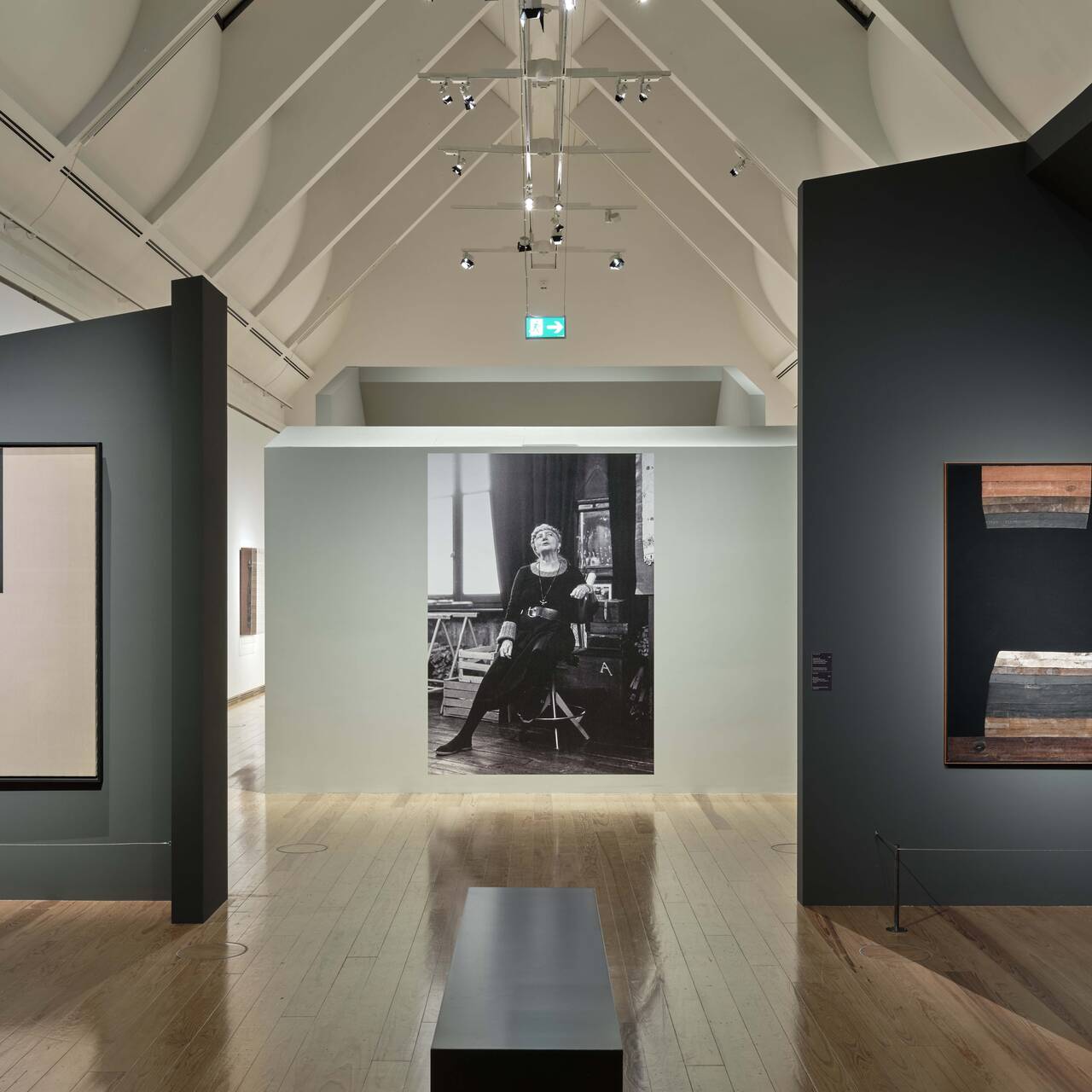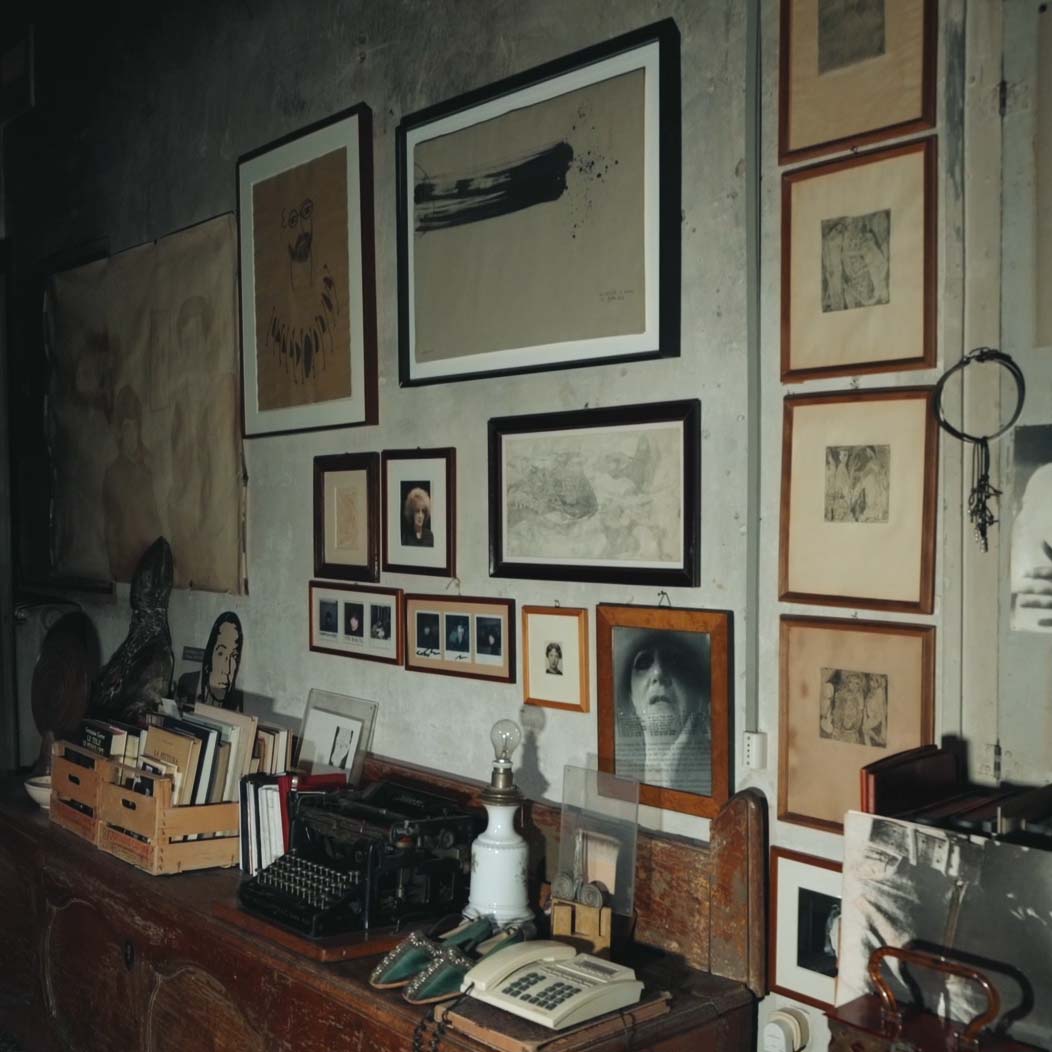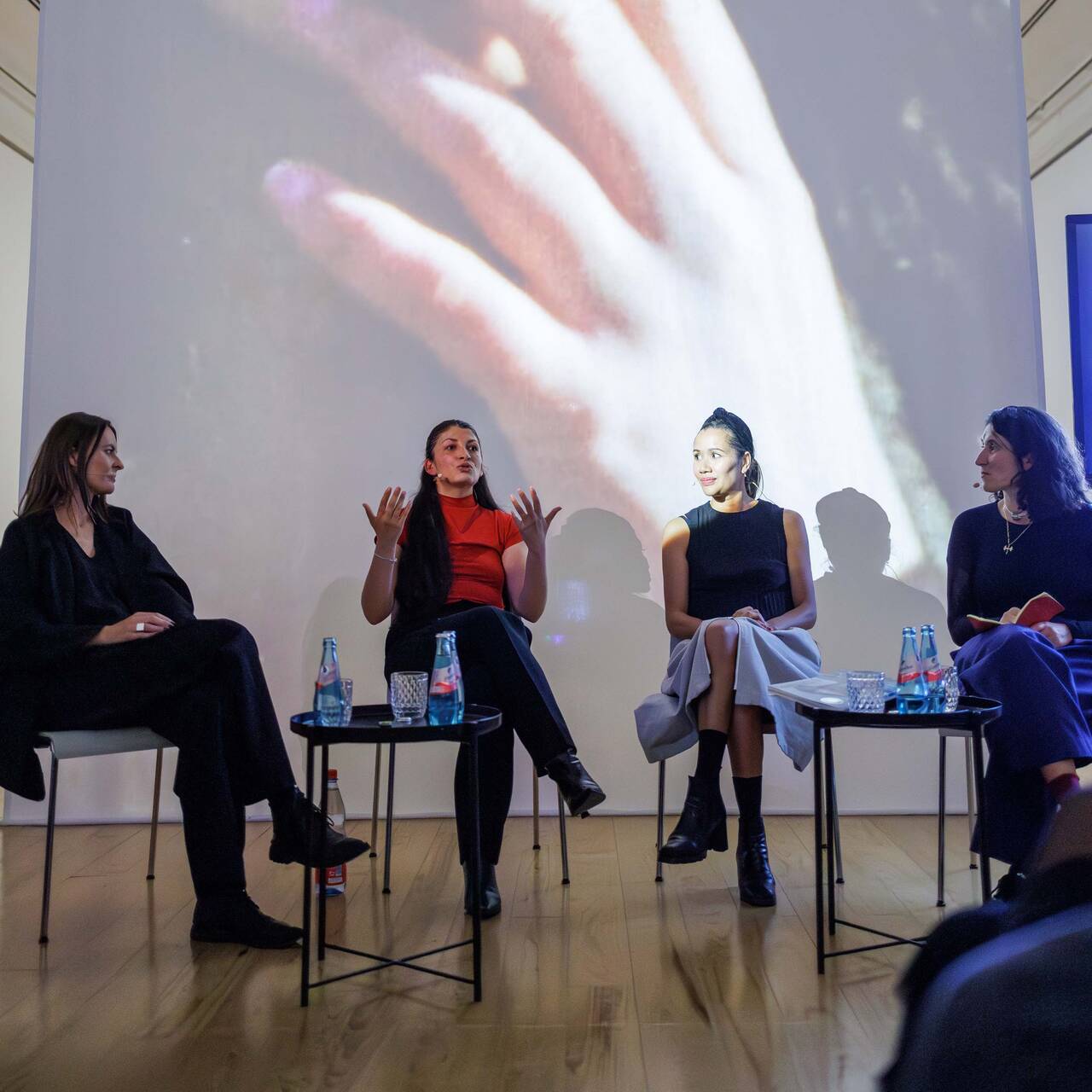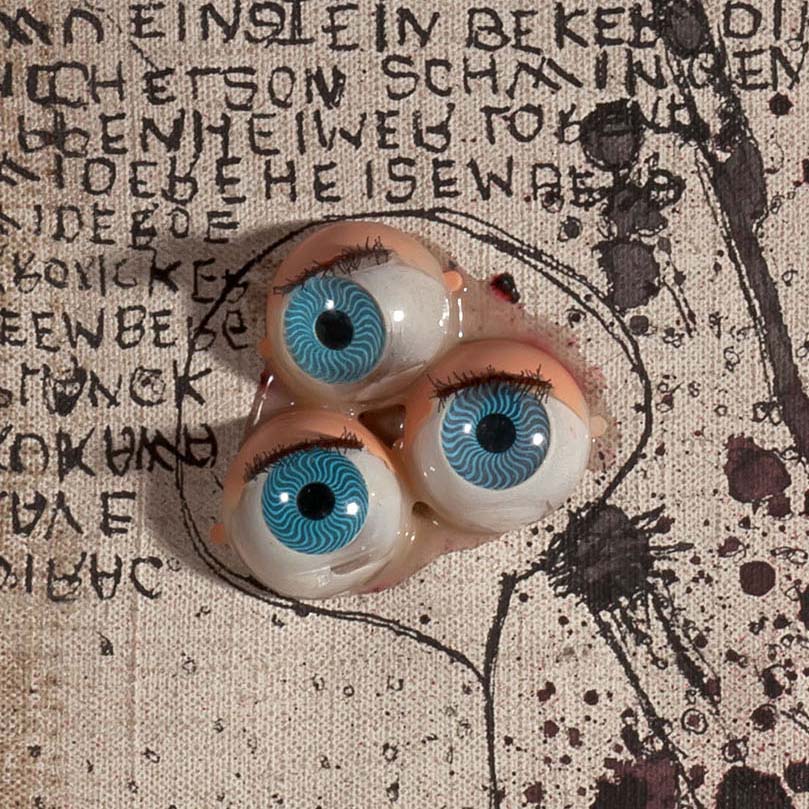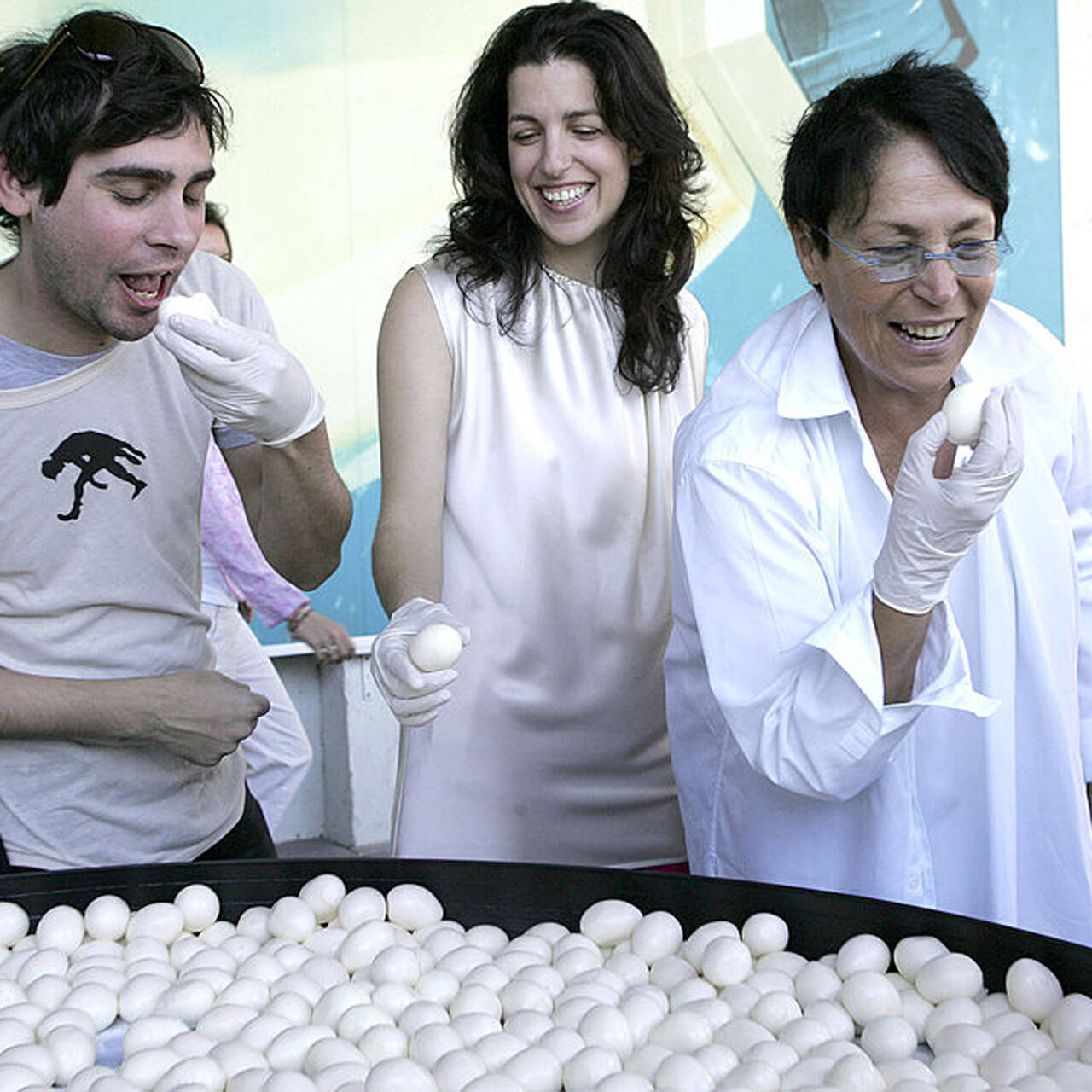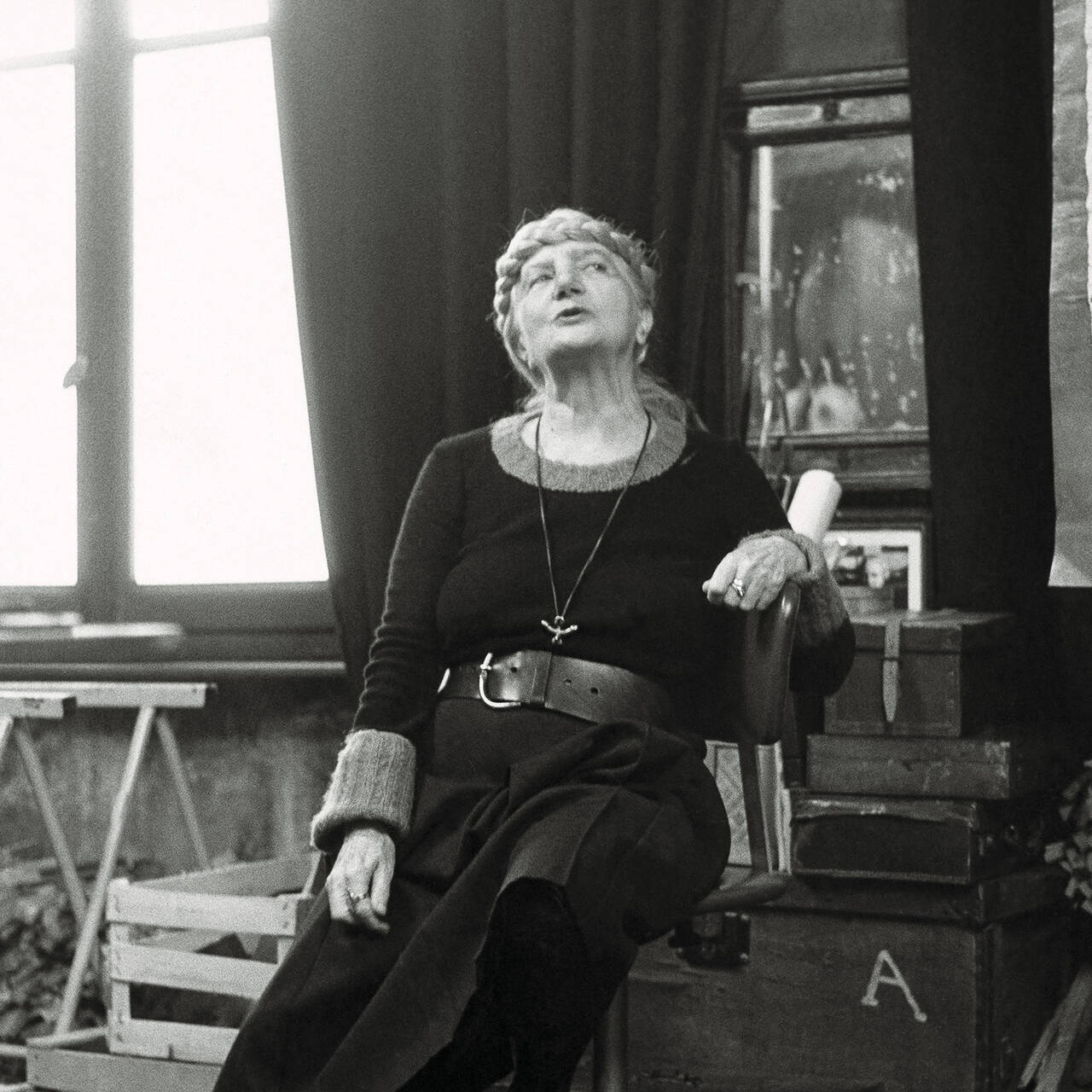The Jos Plateau in Nigeria was famous for its tin mining during the time of British colonial rule. In her video work “Plateau,” Karimah Ashadu accompanies the Nigerian workers who, even today, believe the mining area to be a jackpot, and encourages them to define themselves beyond the colonial past.
Right at the beginning of Karimah Ashadu’s “Plateau” (2021-22), the camera reveals a view of the Jos Plateau, a grassy highland in Nigeria, and the people who work there. The landscape is literally engraved with colonial history: It is rutted by tin mining, which took place on an industrial scale during British rule. The region around the state capital of Jos is rich in mineral resources and was systematically exploited as early as 1904. For a time, it was one of the largest tin mining sites in the world, but after Nigeria gained independence in 1960 and shortly thereafter the demand for heavy metal continued to decline and the international companies withdrew.
In “Plateau,” the British-born Nigerian artist Karimah Ashadu accompanies the people who, through arduous work, wrest the last remaining tin from the earth in situ. “What we do now is just remine the mines the whites left behind”, explains one of the workers. The camera follows the mostly young men and shows the physically strenuous as well as dangerous process of tin mining, which has to be done entirely manually without the industrial machinery of the companies formerly active on the ground. Barefoot, they climb around on the rubble, scoop water from one rock level to the next, and sift the earth. In the meantime, the camera keeps wandering over to the quarrying area and gets lost in the battered stretch of land. Small ponds have formed in eroded layers of earth. A man swims in the hot midday sun, while others stand on rocky outcrops, pausing briefly to watch him.
.

Meanwhile, on the audio level, Karimah Ashadu lets workers, landowners, and farmers speak for themselves, commenting on the complex, multi-layered situation on the ground from different angles. Yes, tin mining is a growing burden on nature, but it also ensures that people can feed their families, explains one worker. You might hit the jackpot in the mining area, says a landowner who leases his land to others so they can search for tin. One young man made a rich find there, he says, and was then able to buy a house and send his children to school. But the colonial past also crops up in the workers’ stories: Their parents, who still worked for colonial masters, would have had nothing of the rich profits and earned just enough for food. Nor did their own government convey to the landowners that they could have demanded significantly more money from the international tin companies.

MORE THAN SUBJECTS OF COLONIAL HISTORY
In her work, Karimah Ashadu, who lives and works in Hamburg and Lagos, repeatedly deals with living and working conditions and notions of independence in the socio-economic context of West Africa, especially Nigeria. In “Brown Goods” (2020), for example, she accompanied Emeka, a Nigerian living in Hamburg. His residency status in Germany does not allow him to be a regular employee, and so he deals in secondhand electrical goods on his own in Hamburg, which eventually trace his own escape route backwards as they find their way to Nigeria. Earlier, more experimental short films such as “King of Boys (Abattoir of Makoko)” (2015), which highlights the goings-on in a slaughterhouse, were made in Lagos.
In an interview about “Plateau,” the artist explained that she is not primarily concerned with a strong political agenda to be conveyed to viewers. And so, although the colonial past always resonates in the background of “Plateau” in image and sound, Karimah Ashadu focuses more closely on the local people. She offers them a platform, placing them at the center of the action and understanding them as acting individuals instead of merely subjects of colonial history. This is also reflected in the way one of the protagonists in “Plateau” describes himself and his people: The Berom, the indigenous population of the region, are just like the local cacti – they thrive in drought as well as in rain; they survive whether they have to fight or are left alone.

WHEN PAST AND FUTURE BRIEFLY DON’T MATTER
As her second film, Karimah Ashadu has chosen 2002’s “Heremakono” (Waiting for Happiness) by Abderrahmane Sissako. The film is set in Nouadhibou, a small town on the Mauritanian coast. Here, 17-year-old Abdallah (Mohamed Mahmoud Ould Mohamed) stops off once again to visit his mother – but his mind is already in Europe, where his journey is actually headed. He spends the days in an aimless state of waiting, no longer feeling a real connection to his hometown and barely understanding the local dialect. In the meantime, the lively goings-on in the small town continue, and Abdallah is increasingly captivated by them as the film progresses.
“Heremakono” offers a fascinating insight into everyday life in a small West African town. Abderrahmane Sissako loosely accompanies various residents, strings together everyday occurrences typical of the region, and draws his viewers into local events in a similar way to Abdallah, who is actually only on a stopover. The director himself got to know the town in a very similar way – at the time, it was his own stopover before he left for Russia to study at a film academy there: “I was interested in this idea of passing through on the way to a place you may never reach. The exile before the journey.” His film thus also becomes a celebration of the moment, of the perception of a specific moment in which the future and the past are for a short time irrelevant, and life is completely at home within itself.
I was interested in this idea of passing through on the way to a place you may never reach. The exile before the journey.


